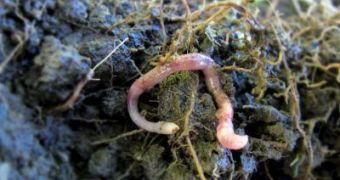The journal Biology Letters just published a new study concerning the links between global warming and some new residents of the soils surrounding an urban farm in Dublin.
To be more precise, scientists from the University College Dublin recently found that, as a result of climate change and increasing soil temperatures, an earthworm known among specialists as Prosellodrilus Amplisetosus had extended its geographical habitat to this part of the world as well.
Dr. Olaf Schmidt, one of the researchers in charge of conducting this study, supposedly told the press that, “There have been a few recordings of the earthworm Prosellodrilus Amplisetosus outside of its native range in the Aquitaine region of south-western France, but now we have discovered a successfully thriving population in Ireland, about 1,000 km [about 620 miles] north of its native habitat.”
Their report explains that it is quite likely that the worm was first brought here by humans who were transporting plants or live fish bait, but that this species could not have survived or flourished in this region if the new environmental conditions it found itself exposed to hadn’t suited its needs.
Naturally, one might asks why it is that scientists do not really approve of Prosellodrilus Amplisetosus' decision to make said urban farm in Dublin its new home.
The answer is quite simple: its presence here is likely to disturb the chemical balance of local soils, causing the carbon trapped in these lands to be released into the atmosphere.
More so given the fact that this particular worm species feeds on organic carbon to which native worms have no access.
PhD student Carol Melody explains that, “If other soil decomposers such as Prosellodrilus Amplisetosus start to expand their habitat ranges we could see increasing amounts of CO2 being released from the soil where previously this carbon had been locked up because it was inaccessible to native earthworm species.”
From where we stand, these findings are proof enough that humans' constant interfering with the natural world is beginning to cause troubles nobody could have foreseen.

 14 DAY TRIAL //
14 DAY TRIAL //